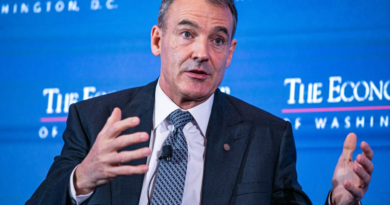Tesla stock has soared over 140% this year—but a bullish analyst just downgraded it, saying investors are 'dismissing' some 'fundamental' near-term challenges
After falling roughly 65% in 2022, shares of Tesla have caught fire this year, gaining support from Wall Street during the market’s recent A.I. induced rally. The EV giant’s stock is now up more than 140% year to date and some 40% in the past month alone after gaining traction from multiple charging station deals that CEO Elon Musk signed with legacy automakers to boost revenues this quarter.
But Barclays’ senior autos analyst Dan Levy downgraded Tesla stock from a buy-equivalent rating to a hold-equivalent rating this week, citing near-term margin issues and an aggressive valuation. Levy, a perennial Tesla bull, still believes in the company’s long-term future, and he increased his 12-month price target for the stock to $260 from $220 to reflect the recent run-up in its price. Tesla traded at just over $260 per share on Wednesday. But he’s got a message for investors out there.
“We’ve been bullish on Tesla. We see them as a long-term winner in the industry’s transition to an EV world. We acknowledge that there is more to Tesla than just the automotive story,” he told CNBC Wednesday. “But I think the view on the stock is that there’s still a more challenging near-term fundamental setup.”
Are more price cuts ahead?
Levy noted that Tesla is expanding its production capacity at multiple facilities around the world at a time when there is “elevated inventory” of its vehicles on the market, particularly for the entry level model 3 sedan. He argued that this elevated inventory could force Tesla into “further price cuts” as it seeks to offload vehicles, which, in turn, could lower margins moving forward. Tesla slashed prices on multiple models a total of five times in the first quarter of this year, hoping to boost demand, but some analysts have warned they could be sacrificing profitability over the long term.
Levy also noted that Tesla stock has seen its valuation increase dramatically this year, as measured by the key ratio of enterprise value (EV) to EBITDA (earning before interest, taxes, depreciation, and amortization). Tesla’s EV to EBITDA ratio is now roughly 50x, compared to an average of 23x last year, data from Morningstar shows. For reference, the EV to EBITDA ratio for the wider tech sector in January was just 16x, according to Siblis Research’s latest data.
Levy said Tesla’s rapidly increasing valuation shows that much of its stock price increase this year has been caused by “sentiment, with little changing in the way of fundamentals.” In other words, investors are getting excited but not much has changed under the hood.
“With the run in the stock, we thought that the stock was dismissing some of those fundamentals, hence the move to the sidelines,” he added. Shares of Tesla traded down as much as 5.9% on Wednesday after Levy’s downgrade.
Still, like many Wall Street analysts, Levy remains bullish on Tesla’s long-term prospects, noting that the release of the Model 2 next year should help boost sales and the rollout of full self-driving, while far from guaranteed to be an outright success, could help to lift margins after that.
It’s a sentiment shared by Tesla’s biggest supporter on the Street, Wedbush’s tech analyst Dan Ives. In a June 14 note, Ives highlighted the potential for Tesla’s Cybertruck and Model 2 to increase sales over the next few years and argued that the firm’s charging station deals with other automakers could add $3 billion in top line revenue over the next “few years.”
“In a nutshell, Tesla is in a massive position of strength after building its EV castle and now is set to further monetize its success,” he wrote, tagging the firm with a buy-equivalent rating and a $300 price target.


